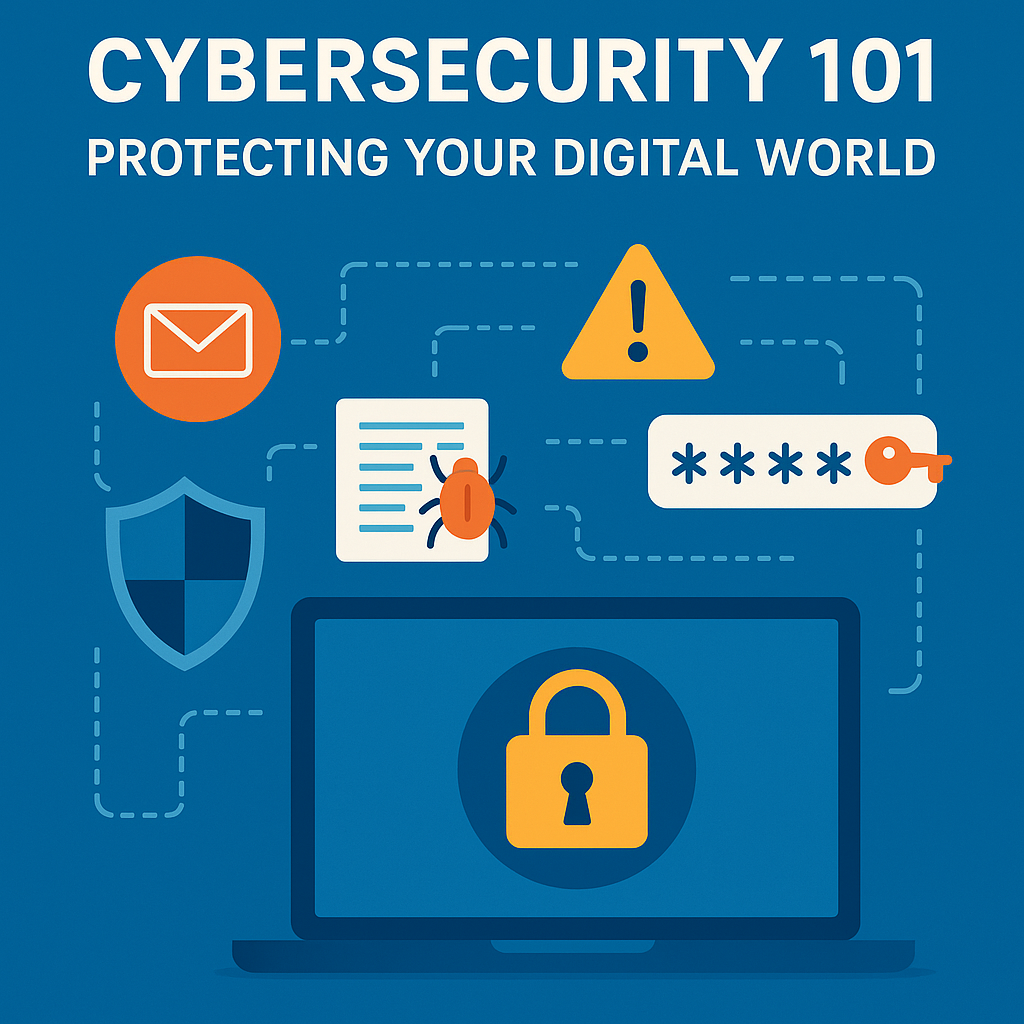Let’s face it—our lives are more digital than we ever imagined. From paying bills online to storing memories on cloud drives, everything is connected. But with this convenience comes a not-so-welcome guest: cyber threats. And the scary part? You don’t need to be a tech expert to fall victim.
That’s why understanding cybersecurity isn’t optional anymore—it’s a basic necessity, like locking your front door.
So, What Is Cybersecurity Really?
Cybersecurity is just a fancy word for protecting your digital stuff—your data, devices, emails, accounts—from being stolen or misused. It’s like having a security guard for your phone and laptop. But instead of muscle, it uses smart tools, awareness, and good habits.
Why Should You Care?
Because your data is valuable. It’s not just about your bank details; think about your photos, conversations, saved passwords, or even your identity. Hackers don’t need much—they just need one weak point, and your entire digital world could be exposed.
And no, cybercriminals aren’t just after big companies. In fact, individual users and small businesses are the easiest targets, simply because they let their guard down.
Common Cyber Threats You Should Watch For
- Phishing – Those fake emails or texts that ask you to click a link or “verify your account.” Often disguised as banks, delivery services, or government agencies.
- Malware – Harmful software that sneaks into your device through downloads or infected websites.
- Ransomware – This one locks up your files and demands money to give them back. Yes, it’s as bad as it sounds.
- Password Attacks – Weak or reused passwords are a goldmine for hackers.
- Fake Apps or Websites – Look-alikes designed to steal your information when you log in or make a payment.
Simple (But Powerful) Ways to Stay Safe
You don’t need a degree in cybersecurity to protect yourself. Here are some practical steps you can take today:
- Use strong, unique passwords for every account. Skip the “123456” or “password123” nonsense.
- Turn on two-factor authentication—yes, those extra OTPs are worth the trouble.
- Update your devices regularly. Those annoying updates often fix security holes.
- Avoid public Wi-Fi for banking or shopping unless you’re using a VPN.
- Think before you click. If something feels off, it probably is.
- Back up your data—because losing everything to a virus is worse than a bad Monday.
- Use antivirus software—even free versions are better than nothing.
If You Run a Business, Read This
Cybersecurity isn’t just a personal matter. If you’re a business owner, even a small one, you’re also responsible for protecting your customers’ data.
- Train your team—don’t assume they “just know.”
- Use secure networks and backup systems.
- Restrict access—everyone doesn’t need admin rights.
- Have a backup and recovery plan if things go wrong.
Final Thoughts
Cybersecurity isn’t about paranoia—it’s about preparedness. Just like you wouldn’t leave your home unlocked, don’t leave your digital doors wide open. Start with small habits, stay alert, and remember: you don’t need to be a techie to stay protected.
The internet can be a wonderful place—as long as you browse it smartly.
Stay safe. Stay informed. Protect your digital self.



